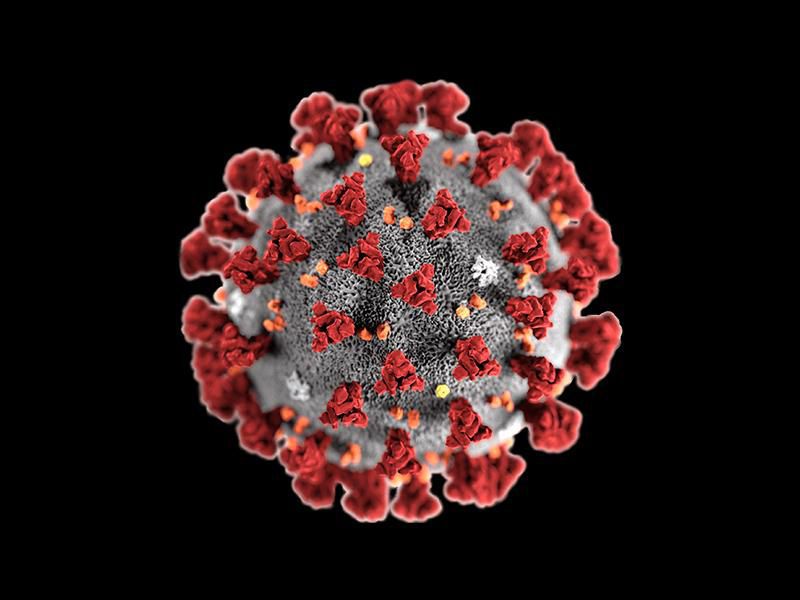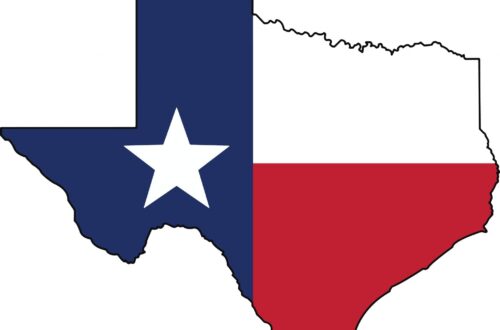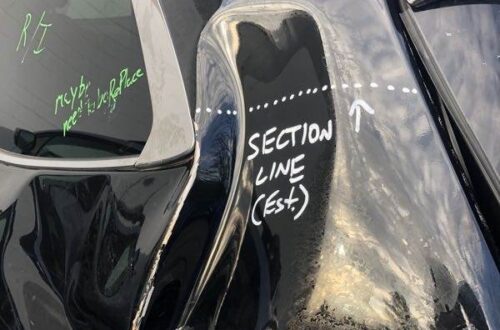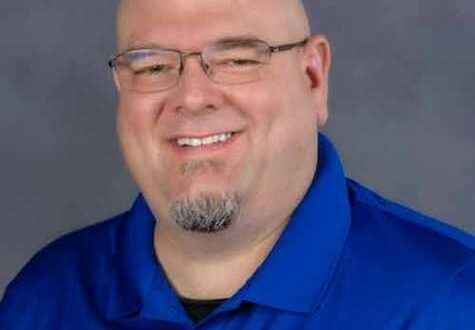Local Associations Discuss Impact of COVID-19 on Members and Organizations

Collision repair industry associations around the country may take different stances on various matters, but one shared commonality is the intent of improving the businesses of their members.
The global pandemic is impacting various communities and even individual businesses in different ways. Several association leaders graciously agreed to discuss some of the challenges they’ve seen, as well as some of the solutions they’ve presented, while helping member shops navigate the current situation to the best of their ability.
Addressing the impact COVID-19 has had on shops so far, the consensus appears to be that there is no consensus.
Some shops are experiencing significant reductions in workload, while others have seen increases, and still others have shut their doors.
“While all shops have been impacted, the severity ranges quite a bit,” said Amanda Henry, executive director of AASP-PA. “Some shops have combated the effects of the impact of the virus by shortening their work week, changing their hours or laying off employees. All have ramped up their marketing offers, some in rather creative ways, including offering to run errands for their customers while they are servicing their vehicles.”
Cathi Webb, executive director of the Northwest Automotive Trades Association (NATA), said layoffs have become a reality in her members’ businesses, and she reported some smaller shops will only be able to survive the shutdown for a limited number of months.
Josh Kent, executive director of the Carolinas Collision Association (CCA), agreed some shops are busier while others are extremely slow.
“Some shops are taking advantage and tuning into free education webinars; others are not,” he added.
“The business impact on the industry has certainly not been insignificant, and it’s created a financial strain on members,” said AASP-MN Executive Director Judell Anderson. “Despite the workforce shortage, they’ve found ways to keep their valued employees on the payroll and to provide safe, innovative service to the motoring public while restrictions are in place. Like any other challenge, those who have positioned their business strategically for the long term will survive, although probably with a few battle scars.”
“Most of our shops report anywhere between a 50% and a 75% drop in business,” said Ricki Garrett, executive director of the Mississippi Collision Repair Association (MSCRA.) “Some have indicated that they are still catching up on previous work orders, but they anticipate business to slow more in the coming weeks.
“When asked if they are having difficulty getting parts or PPE, most of them have responded that delivery of parts has slowed, and some of them have indicated difficulty in getting enough PPE. A number of the shops have applied for the loans under the CARES Act, and some of them have already received checks.”
AASP/NJ President Jerry McNee observed that most shops in his area have suffered from a lower car count, and some have temporarily closed.
“Everyone has had to change some aspects of the way they do business, whether it be meeting customers outside, disinfecting vehicles and their working environment on a continual basis, or possible layoffs due to the reduction in business,” said Burl Richards, president of the Auto Body Association of Texas (ABAT.) “This is a life-changing event that no one was prepared for.”
Jeff Oldenettel, president of the Kansas Auto Body Association (KABA), pointed out shops are contending with different challenges than before.
“Instead of needing techs, shops are worried about workload and if they’ll lose their techs if they’re forced to lay them off,” Oldenettel said. “That’s one of the biggest fears I’ve heard. It all comes down to shop culture. No one is truly knowledgeable about this situation because it’s so new. We’re all struggling through some new realities.”
Members of Women in Automotive and Collision (WAC) have engaged in new ways of communicating with customers and offering curbside options to enhance customers’ comfort level.
“All the shops have taken extra measures to offer touchless services such as drive up estimates, drop off and pick up services. I have heard of shops arranging add-on sublet services, such as chip repairs and glass replacement, so the customer doesn’t have to go to multiple places,” said Shelly Jones, WAC president.
Shops aren’t the only ones getting creative. The associations have all had to reschedule major events, but they’ve also made efforts to provide training to members through virtual means.
CAWA’s June Leadership Meeting will be replaced with a series of conference calls. Some are still exploring various online options, but others have already began providing information to members through this medium.
CCA hosted a Zoom meeting for members that featured several special guests, including Brandon Eckenrode of CREF and NABR’s Sam Valenzuela. AASP-NJ also hosted a Zoom meeting to share information on the CARES Act.
ASA Northwest has hosted several Facebook Live panels to discuss members’ challenges and strategies. In fact, some of those meetings have generated larger turnouts than past physical meetings.
“We want to make sure they know we’re a resource they can turn to for important information,” said ASA Northwest President and Executive Director Jeff Lovell. “We have guys who are mentoring shops, and we’re sharing our Dateline publication weekly because things are happening so fast and we want to get it out to members. There’s a lot of great free training out there right now, and we’re encouraging our members to take advantage of that as well.”
James Rodis, vice chair of the Nebraska Auto Body Association (NABA), also urged shops to take advantage of the educational opportunities currently available.
“The entire industry has been great, and many suppliers, trainers and other companies within the collision repair industry are offering tons of free webinars,” Rodis said. “I hope people are using those. Collision Hub’s courses have been great, and I don’t care how smart you think you are—you can always learn something new! Take the time to clean your shops and prepare to reopen, and get all your training done now!”
Most association personnel are working remotely, and some associations have been forced to reduce staff. They are all striving to answer members’ questions and concerns and are distributing information by email to keep members updated on the various financial relief options available, and they’ve updated their website to ensure the information is easily accessible.
“We’ve been busier than ever,” Anderson said. “Fortunately, AASP-MN staff was already set up to work remotely, so that transition has been seamless.”
“In my calls to the shops, we are asking them to recommend ways in which the association can be most helpful,” Garrett said. “On a national level, we have encouraged Congress to provide financial help to small businesses.”
“No one is truly knowledgeable about this situation because it’s so new,” Oldenettel said. “We’re all struggling through some new realities, and as an association, KABA’s job is to disseminate as much reliable information as possible to our membership and help them sort it out when possible.”
“The benefits of association membership have become even more important during this crisis,” Anderson said. “AASP-MN is here to help shops by providing access to ‘need-to-know’ information and education, connecting them with their peers to share experiences and lessons learned and reducing their costs with our member benefit programs.
“Since the impact of the crisis hit in mid-March, we’ve scoured various legislation and other measures taken by the government, distilled that information down to what’s relevant to members, and then communicated it through weekly updates,” Anderson continued. “We sponsored a free ‘crisis marketing’ webinar and have scheduled Zoom roundtable sessions for members to share and discuss the impact on employees, shop practices, marketing, finances and the like. Members really want to talk to each other right now and learn from what others are doing.”
ARA has also been providing members with information related to workplace safety, including “issues such as protecting individuals in the workplace and how to safely disinfect vehicles,” Blalock noted.
“ARA also provided its members with a template transit letter for their employees to carry with them when commuting to and from the workplace. It explains to authorities in states with ‘stay at home’ orders and closures that these employees are deemed ‘essential,’” Blalock said. “ARA also established a COVID-19 Relief Fund and has raised over $60,000 so far to benefit ARA direct members who struggle due to the pandemic.”
CAWA has also provided a template letter for essential employees, and the association is “encouraging members to join the YANG effort to financially support the Automotive Aftermarket Charitable Foundation that assists aftermarket associates in time of crisis and need, as well as advocating to state and local governments that our industry businesses be consider essential services during ‘shelter in place’ directives,” President and CEO Rodney Pierini said.
Since many shops are struggling to obtain face masks, ABAT placed a large order for face masks with the association logo.
“We offered the masks at cost for our interested members, and we had a great response,” Richards said.
When asked to offer advice for struggling shops, association leaders were quick to point out the opportunities that exist within this crisis.
Garrett has encouraged shops to take advantage of the financial assistance available through the CARES Act.
“Hang in there; we all need you,” Webb said. “Once the floodgates open, I’m sure we’ll all be back in full swing and celebrating.”
“Lean on vendors, industry peers and members of organizations that you belong to,” Jones said. “Tap into your network and connections to find resources and brainstorm ideas.”
“While none of us have ever seen anything like this before, we’ve all weathered bad storms before and together we can get through this as well,” Henry said. “One thing I’ve learned working in this industry is that shop owners are a strong, creative bunch, and the relationships built through the years are what will get us all through this as well. Lean on those relationships now—reach out and help one another if you can, even if it’s just to listen and commiserate.”
Oldenettel suggested, for shops that can afford it, now is a great time to remodel and prepare for the future.
“We’re redoing our floors and updating things we’ve put off because we didn’t have the time. Work on your business so you’re ready when things start to calm down—it’s not all gloom and doom. There will be an end to this,” Oldenettel said. “As an industry, we need to see this as an opportune time to accelerate into the rest of this year. It’s an opportunity if you just view it that way.”
“Take the time to do all the things you have been putting off for years because you never have time to do it,” Kent said. “Educate you and your shop during this time. This industry needs to start taking back control through education. It’s time to implement change and take that leap of faith to support state associations because we’re here to help everyone. The more change we can help create, the better it is for every shop and all of our customers. If you are struggling, please reach out to CCA as we have resources that may help.”
Richards thinks this is also a great time to market the business and consider the effectiveness of the shop’s business model.
“Take a close look to determine if your business model is based on volume from referrals or if you’re set up to make as much profit as possible, which includes indemnification for all processes, procedures and costs associated with that repair,” Richards said. “Our clients depend on us for a safe outcome, and that liability requires continued training and equipment, which comes with a price. Are you factoring this into your cost of doing business?”
“This is an eye opener for all of us,” McNee said. “It’s time to re-evaluate our business. Relearn your business inside and out. It’s time to plan for your future. We want to come out of this stronger, smarter, better and more educated than when we went in. Ask yourself what you’re going to do differently. What do you need to do to survive? Your business won’t fix itself, so you need to determine the best way to run your business.”
Association leaders also expressed a lot of respect for shops going out of their way to help their employees and communities during this health and economic crisis.
“Shops are very grateful to be considered an essential business during this time and are doing everything they can to keep their employees and hold on until the pandemic is over,” Garrett said. “Some are also helping their communities by providing extra masks, ventilators and sanitizer to their local hospitals.”
“I’m impressed with the generosity, resourcefulness, business acumen and commitment that our members have demonstrated during this crisis. It’s going to be rough for a while, and the industry will emerge changed but stronger than ever,” Anderson added. “There’s a reason that auto and collision repair were deemed ‘essential’ businesses, and that’s because they are! The fundamental need for consumers to have their vehicles maintained and repaired has not changed and will continue after this crisis has passed—perhaps at even greater levels than ever before.
“This industry has always been resilient, whether adapting to changing vehicle technologies or a shifting regulatory environment. If shops stay informed, take advantage of the resources available to them and adjust accordingly, they can weather the storm and come out wiser and stronger on the other side.”


